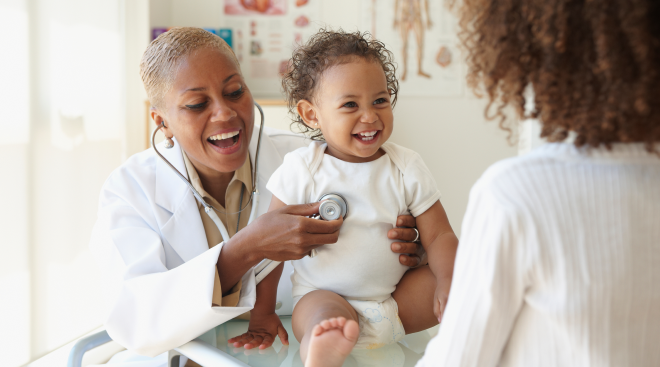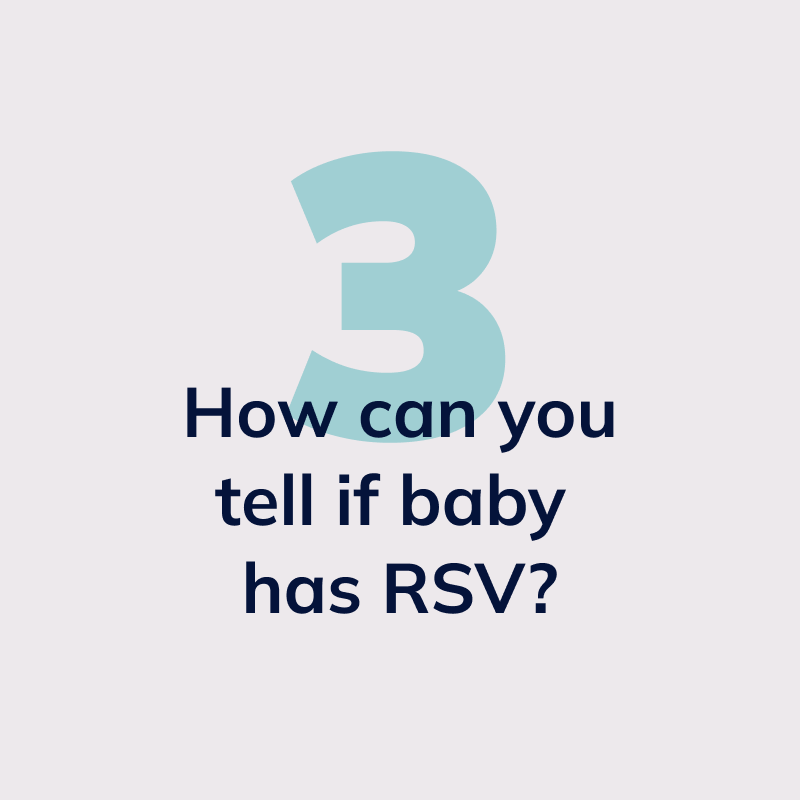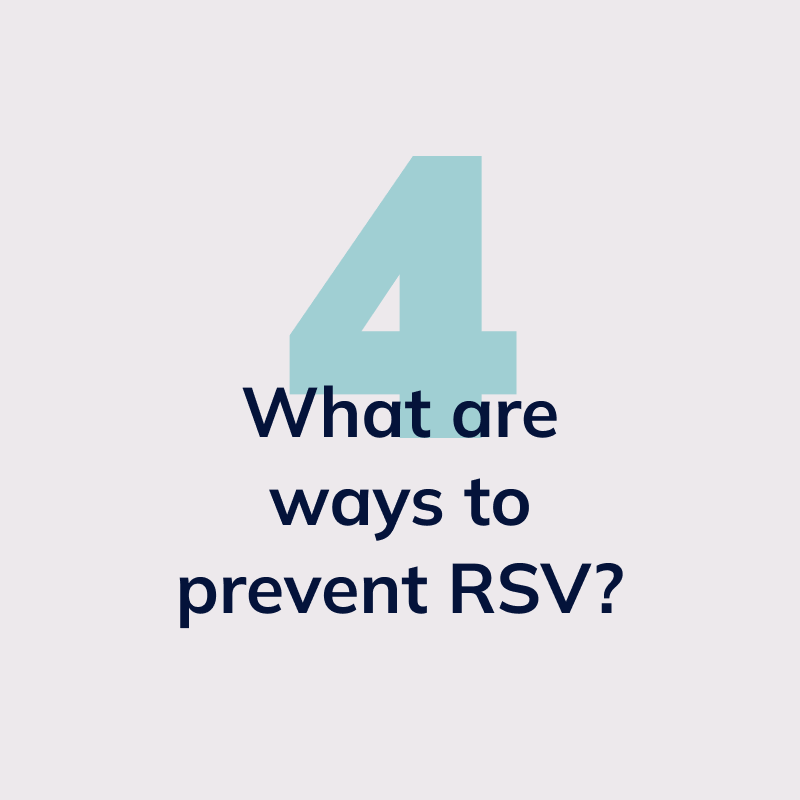While viruses are certainly a part of life, there is one virus to be especially wary of as a new parent: respiratory syncytial virus (RSV). It is one of the most common childhood diseases, with the infection appearing and passing through nearly 100% of two-year-olds. But while RSV is common, that doesn’t mean it isn’t dangerous—the virus is leading cause of hospitalization in infants under one year of age and can spread very easily, especially during RSV season from fall to mid-winter and through the spring. Do you have any questions? Here are some things you might want to ask your baby’s doctor.
“Anyone at any age” can get RSV and develop symptoms, explains Rosey Olivero, MD, a pediatric infectious disease specialist at Corewell Health Helen DeVos Children’s Hospital in Grand Rapids, MI. And RSV is highly contagious. That means the whole family—from newborns to the elderly—will likely come in contact with the virus this fall-spring RSV season.
However, Dr. Olivero explains that children in the first two years of life tend to have more severe cases of bronchiolitis, a complication from RSV. “Some infants are at much higher risk of … severe RSV, and these include babies born extremely prematurely and those with significant heart and lung disease,” she notes. While any healthy infant can still face the risk of complications from RSV, Dr. Olivero also adds that anyone who is immunocompromised, including children and adults, can also become seriously ill.
RSV is especially dangerous in younger babies because they have smaller lower airways than older children. And because their airways are so tiny, excess mucus from the infection can clog the airways, Dr. Olivero explains, making it very difficult for babies to breathe and exchange oxygen and carbon dioxide.
According to the CDC, RSV is the most common cause of hospitalization in infants. If an infant is hospitalized with an RSV lung infection, Dr. Olivero notes, he or she will likely receive help with breathing and feeding support while in the hospital. “Some babies need to be supported by placing a breathing tube and using a ventilator,” she adds. Occasionally, severe cases of RSV lung infection can be fatal, but Dr. Olivero explains that fortunately, in the U.S., deaths are relatively rare.
According to Dr. Olivero, RSV will start to look like the common cold in babies and children. However, the main distinction between RSV and other viruses is that around the third day of an infection, it can develop into a specific type of respiratory condition called bronchiolitis.
Bronchiolitis means inflammation of the small airways in the lungs and can cause symptoms in babies such as:
- Very fast breathing
- Labored breathing
- Contractions (the pulling of the skin between the ribs and over the collarbone with breathing)
- Nasal medicine
- A blue color around your baby’s lips
- Poor nutrition
“Any of these symptoms should prompt parents to contact their pediatrician immediately,” says Dr. Olivero. He also adds that influenza (flu) infection can cause very similar symptoms to RSV lung infection, but is less likely to lead to severe bronchiolitis. However, whether you suspect flu or RSV, call the baby’s doctor or seek medical attention right away.
The FDA has approved a prophylactic antibody, nirsevimab (Beyfortus). Your baby’s doctor will let you know if Beyfortus is available. Beyfortus may not protect all children.
Due to high demand, Beyfortus supplies are limited for the 2023-2024 RSV season. Sanofi is working with the CDC to fairly distribute all remaining doses.
Other daily measures to prevent RSV include:
- washing your hands often
- cleaning and disinfecting surfaces at home
- avoiding close contact with anyone who has cold or flu-like symptoms
- covering your face when you cough or sneeze
INDICATION Beyfortus is a prescription medicine used to help prevent a serious lung disease caused by respiratory syncytial virus (RSV) in: Newborns and babies under 1 year of age born during or entering their first RSV period. Children up to 24 months of age who remain at risk of severe RSV disease during the second RSV season.
IMPORTANT SAFETY INFORMATION Your child should not take Beyfortus if your child has a history of severe allergic reactions to nirsevimab-alip or any of the ingredients in Beyfortus. Before your child receives Beyfortus, tell your healthcare provider about all of your child’s medical conditions, including if your child: has ever had a reaction to Beyfortus. has bleeding or bruising problems; If your child has a problem with bleeding or bruising easily, an injection could cause a problem.
Tell your health care provider about all the medicines your child is taking, including prescription and over-the-counter medicines, vitamins, and herbal supplements. Your infant should not receive a medicine called palivizumab if he has already received Beyfortus at the same time of RSV. Serious allergic reactions have occurred with other medicines such as Beyfortus. Get medical help right away if your child has any of the following signs or symptoms of a severe allergic reaction:
- swelling of the face, mouth or tongue;
- difficulty swallowing or breathing
- non-response
- bluish color of the skin, lips or under the nails
- muscular weakness
- severe rash, hives or itching;
The most common side effects of Beyfortus include a rash and pain, swelling or hardness at the injection site for your child. These are not all the possible side effects of Beyfortus. Call your healthcare provider if you have questions about side effects. See the full Prescribing Informationincluding Patient InformationFor more information.
MAT-US-2309088-v1.0-01/2024
Note: The Bump and the materials and information it contains are not intended and do not constitute medical or other health advice or diagnosis and should not be used as such. You should always consult a qualified doctor or healthcare professional regarding your particular circumstances.



